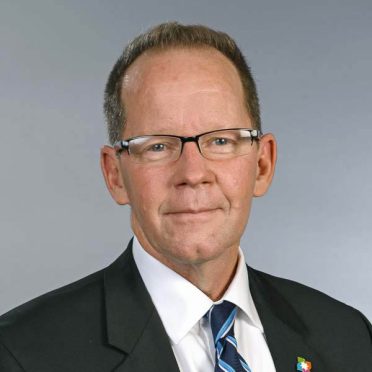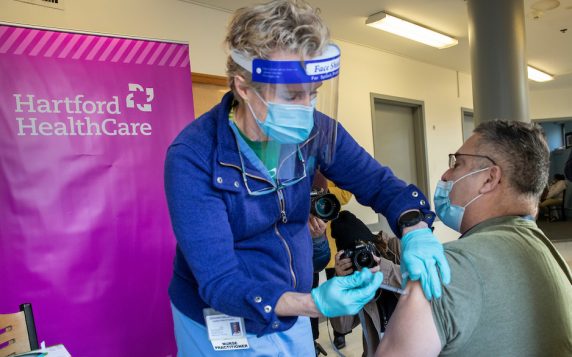The most vaccinated demographic in one of the nation’s most vaccinated states is the Hispanic population ages 55 to 64 with an astounding 91.04 percent vaccination rate, according to the latest data from the state Department of Public Health.
Yet a broader look at Connecticut’s results, using the Centers for Disease Control and Prevention’s Social Vulnerability Index that identifies communities in need of support, reveals something much less surprising — a 50.68 percent vaccination rate compared to 62.81 percent in the rest of the state. The SVI ranks census tracts on 15 social elements, among them poverty, lack of vehicle access, minority status and crowded housing. Connecticut applies SVI standards to the state’s ZIP codes, then designates the top 20 percent as SVI Priority ZIP Codes.
Here are the results:
“For too long, inequities have been an expected part of life,” says Sarah Lewis, Hartford HealthCare’s Vice President of Health Equity, Diversity and Inclusion. “As healthcare leaders and providers, we have a responsibility to ensure inequity is not the status quo. Structural racism creates barriers and leads to adverse health outcomes.
“Various factors determine our health outcomes, including access to healthcare, quality education and housing, financial security, transportation, or clean air and drinking water. To provide quality health services to people from all walks of life, we must take these factors into account to shape the work we do.”
To help reach the underserved, Hartford HealthCare has offered mobile testing and vaccination services during the pandemic. More recently, it launched Neighborhood Health to provide services for people 16 years old and up, including:
- Screenings for such conditions diabetes, prostate cancer and breast health.
- Mental health counseling.
- Medical referrals, including to primary care providers.
- Patient education, counseling and support.
- Lab tests.
- Pfizer and Moderna COVID-19 vaccines on select dates. The Johnson & Johnson vaccine will be available through Sept. 15, also on select dates.
Even with a clear disparity in vaccination rate, the Priority ZIP Codes’ 50.68 percent would still rank higher than 29 other states, among them Iowa, Nebraska, Illinois, Michigan, South Dakota and Ohio. None of Connecticut’s four older age groups, from 45-54 through 75-and-up, have a vaccination rate lower than 50 percent regardless of race or ethnicity.
Evidence of hesitancy among the Black population begins in the 35-44 age group, which, at 49.31 percent, lags both the Hispanic and White population by at least 20 percentage points. The rate drops precipitously among Blacks to 37.21 percent in the 12-15 age group — about 25 percentage points less than Whites.
Here are the latest numbers from DPH, with age groups accessible via the dropdown menu:
Everyone unvaccinated has a reason, whether it's side effects, politics, religion or mistrust of the nation's healthcare system.
"People who do have strenuous views about this topic, whether they're based in race, ethnicity, socioeconomic status or political views, just want to be heard," says Dr. Jim O’Dea, vice president of the Hartford HealthCare Behavioral Health Network.



